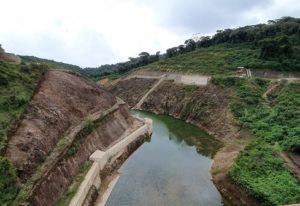Centro de Recursos
REPP invests in landmark hydro project in Burundi

REPP-backed hydro project aiming to increase Burundi’s power production by over 10%
Plans to build a 10.2MW run-of-river hydro plant in one of the world’s least electrified countries have taken a significant step forward thanks to a USD 1 million development loan from REPP.
Burundi currently has an estimated national electrification rate of just 11% and a total installed power capacity of 80MW. Once built, the “Mpanda” power plant in Bubanza Province will increase the East African country’s installed capacity by over 10%, while supporting its conditional Nationally Determined Contribution (2015) target to reduce greenhouse gas emissions by 20% by 2030 and overall vision for sustainable development.
Mpanda is considered a strategic priority project in Burundi, contributing directly to the implementation of the Government’s National Development Plan (2018), as well as supporting the National Strategy and Action Plan on Climate Change (2012), which encourages private investment in renewable energies.
It was initially planned with a 35m dam, but this was subsequently changed to a run-of-river design, which minimises the impact on the physical and ecological conditions of river systems.
Following REPP’s loan, developer Hydroneo East Africa Ltd is looking to achieve financial close by 2022, which will unlock a further USD 25 million in senior debt for the construction of the plant. Commercial operation is expected 12-18 months later.
REPP’s support for the project is the programme’s latest investment in Burundi’s clean energy sector. Since December 2016, REPP has been providing financing for the 8.67MWp solar PV Mubuga project in the Gitega Province, which is currently going through final commissioning.
Geoff Sinclair, Managing Director of REPP’s investment manager, Camco Clean Energy, said he had welcomed the opportunity to continue REPP’s support for Burundi’s power sector and address the country’s power deficit as a means to support economic development.
“Boosting Burundi’s power production by over 10% through the Mpanda project could lead to a potentially transformational impact on the country and its people by enabling the economic activity necessary to improve life prospects and living conditions, while also avoiding over 6,000 tonnes of greenhouse gas emissions every year,” he said.
“What’s more, the project, once completed, will be one of Burundi’s first hydro IPPs to come to market and will have a strong demonstration effect, meaning it will likely pave the way for greater private sector participation in its growing clean energy sector.”
Find out more about the Mpanda hydro project Caroline Frontigny..

